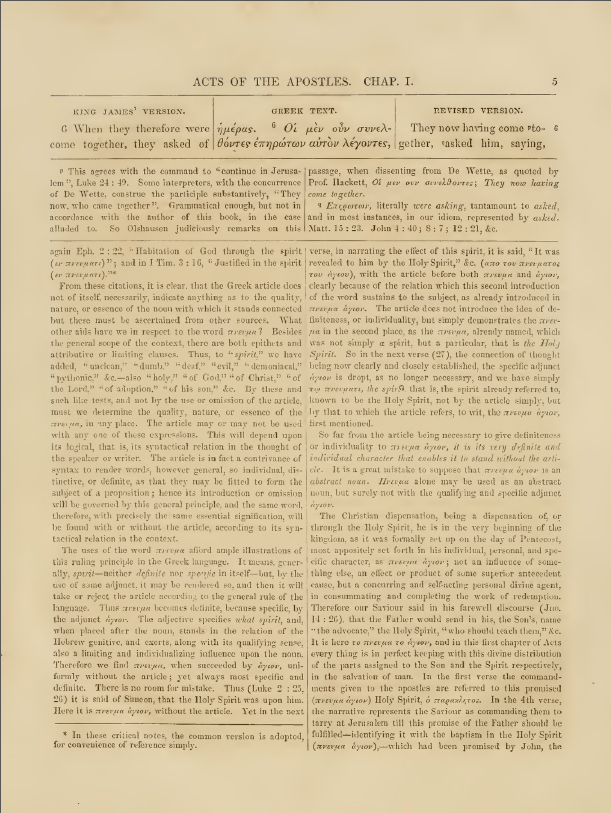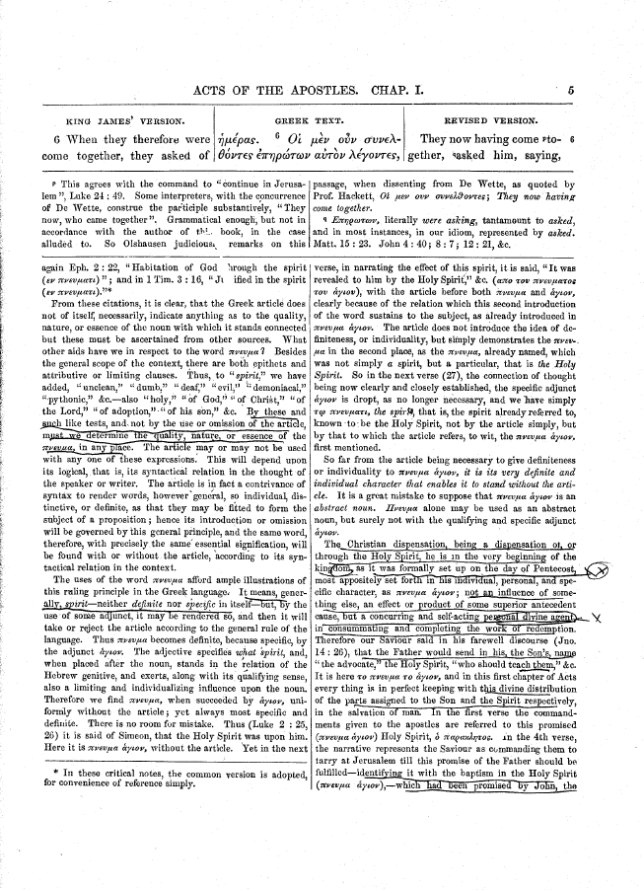
Saul Sees the Light
Enthusiastically, Saul was tormenting the church. He had been threatening and murdering Christians in Judea, and decided it was time to expand his area of destruction to the north. So he went to the high priest and asked for official letters so that he could go to the synagogues of Damascus and arrest anyone he found there—man or woman—who followed Jesus.1
So Paul took a group of men with him, a posse if you will, to help with his operations. These would have been men like Paul, men who were viciously opposed to Christianity, and men who took pride in destroying the doctrine and followers of Jesus of Nazareth. These men are all traveling together on the road to Damascus, and it is almost noon,2 when the sun is at its brightest, when all of a sudden…
A light from heaven shined all around him, and he fell to the ground, and heard a voice saying to him, “Saul, Saul, why are you persecuting me?”3
His mission forgotten for the moment, Saul asked, “Who are you, Lord?” Saul knew that this light was supernatural, for it was much brighter than even the noonday sun. Therefore, he knew that this was a voice from heaven—a voice that spoke with the authority of God. But Saul didn’t understand; he was confused—he had lived in all good conscience before God,4 and was dedicating his life to the extermination of a blasphemous religion. Surely Saul wasn’t persecuting God Himself! No, he was serving God…wasn’t he?
The voice from heaven replied in Hebrew, “I am Jesus, whom you are persecuting. It is hard for you to kick against the goads.”5
Saul was terrified at what he had just heard, and remained on the ground, trembling in fear. If Jesus was speaking from heaven, then Saul had been fighting against God—had been murdering people who were righteous and obedient. If Jesus was speaking from heaven, then Saul deserved the worst possible punishment that Deity could possibly conceive. But Saul, trembling, said, “Lord, what do you wish for me to do?” Certainly fearful of the worst, Saul had to have some measure of hope and relief when he heard the words, “Arise, and go into the city, and you will be told what you must do.”6
His companions—who were speechless and afraid after the incident, seeing the light and hearing a voice7—took Saul, who was unable to see, by the hand and led him into Damascus, where he stayed at the house of a man named Judas.8 We aren’t told what happened to Saul’s companions, but it is hard to believe that they were unaffected by this incident. It is almost certain that Saul, shaking as they walked, would have told them what the voice said; and they would have had a hard time disbelieving it.
For the next three days, the worried persecutor abandoned all food and drink, fasting and dedicating himself to praying to God, whom he had unknowingly been fighting against.9 There is no doubt that he pleaded with God for forgiveness, for understanding of the Scriptures which he had misunderstood, and for mercy on him, whose entire world had just been turned upside-down, and who now viewed himself, not as the hero of Judaism and destroyer of heresy, but as the worst sinner in history.10 Yet through three days of praying, Saul was still not relieved of his sin nor his guilt.
While he is agonizing over his sins, the Lord appears in a vision to a Christian in Damascus—one of the very people who Paul was coming to brutally arrest and perhaps even kill. This disciple of Jesus, a man named Ananias, heard Jesus say:
Get up, and travel on11 the avenue12 which is called “Straight,” and at the house of Judas, ask for the one called “Saul of Tarsus,” because behold, he is praying. And he has seen, in a vision, a man named Ananias coming in and putting his hands on him so that he might see.13
Ananias puts up an argument, showing just how far Saul’s reputation had spread. Ananias hadn’t just heard one person talk about Saul’s actions. He said, “Lord, I’ve heard from many about this man, how much evil he’s done against your saints in Jerusalem, and he possesses authority from the ruling priests to tie up all that call on your name here.”14 Saul was greatly feared because of the wide swath of destruction that he had enacted against the church, and it was common knowledge in Damascus that he was on his way there to do the same thing.
But Jesus reiterates the message in such a way that it calms some of Ananias’ fears (though it isn’t a stretch to think that Ananias was still incredibly nervous):
Travel [Ananias], because he is a chosen tool for me, to carry my name before the Gentiles, and kings, and the children of Israel. For I will show him how many things he must suffer for the sake of my name.15
So Ananias traveled on Straight Street, found the house, and went inside to where Saul was. Saul, unable to see who entered into the room, felt hands being put on him, and heard the words “Brother Saul, the Lord Jesus, who appeared to you on the road by which you came, has sent me so that you might receive your sight, and [that you] might be filled with the Holy Spirit. Receive your sight.”16 And immediately, it was as though something like scales had fallen from his eyes, and he looked up at Ananias, who was standing in the room by him.17 Then Ananias gave him a message—the most important message that Saul had ever heard, the answer to his prayers: what he needed to do to receive forgiveness.
The God of our fathers has chosen you so that you should know His will, and see the Righteous One, and should hear the voice of His mouth. Because you shall be His witness to all people of what you have seen and heard. And now, why are you waiting? Get up and be immersed, and wash away your sins, calling on the name of the Lord.18
Then Saul arose, no doubt overjoyed by the message of forgiveness that was given to him by Ananias, and he obeyed the gospel.19
-Bradley S. Cobb
1 Acts 9:1-2.
2 Acts 22:6.
3 Acts 9:4.
4 Acts 23:1
5 Acts 9:5, 26:14-15. The goads are sharp, pointed sticks (sometimes metal) that are used to push goats or oxen in a certain direction. There are different views as to what Jesus means by the “goads.” Some say it is speaking of Saul’s conscience, which would make him a liar in Acts 23:1, where he says that he had lived in all good conscience before God. Some have suggested that perhaps he was fighting against Gamaliel’s advice in Acts 5. Others have suggested, based on Romans 16:7, that Paul was fighting against family. While these may have some level of validity, it seems more likely that the “goads” that Saul was kicking against are the Law and the Prophets—the inspired Scriptures which pointed the way to Christ. Some translations omit “it is hard for you to kick against the goads” in 9:5, but the words are present in 26:14 in those same versions.
6 Acts 9:6.
7 Acts 9:7-8, 22:9-11. The men heard the sound of the voice, but they did not comprehend the words spoken. There is little doubt that Saul relayed to them what was said.
8 Acts 9:11.
9 Acts 9:9-11.
10 1 Timothy 1:12-16
11 The KJV says “go into,” but both words are not as accurately translated as they could be. The word “go” is actually a word that means “travel,” “transfer,” or “journey (somewhere).” It is used again in verse 15. The word “into” (KJV) is the word epi which means “on” or “upon.”
12 The word translated “avenue” (“street” in most translations) is only used here in the New Testament, and refers to a very busy avenue, crowded with people, and lined on either side with buildings.
13 Acts 9:11-12. The KJV says “that he might receive his sight.” However, the Greek is literally “look up,” and is in the active voice, not the passive as the KJV and most other modern translations render it. By implication, the idea is regaining one’s sight, but since it is spoken in the active voice—as something done by Saul, it is best rendered as we have it (and so agrees Hugo McCord’s translation), “he might see.” Verse 17 shows that it was Jesus speaking to Ananias.
14 Acts 9:13-14. “Tie up” (“bind” in many translations) can refer to being bound in chains, or tied with ropes. One can imagine Saul’s posse traveling towards Damascus with ropes or chains in their hands.
15 Acts 9:15-16. The word “tool” (“vessel,” KJV) is translated as “instrument” in the ESV. The Greek word was often used to describe the sails and tackle equipment on a fishing boat.
16 Acts 9:17; 22:13.
17 Acts 9:18; 22:13.
18 Acts 22:14-16. On the translation “Righteous One,” see MLV, ESV, ASV.
19 Acts 9:18.



